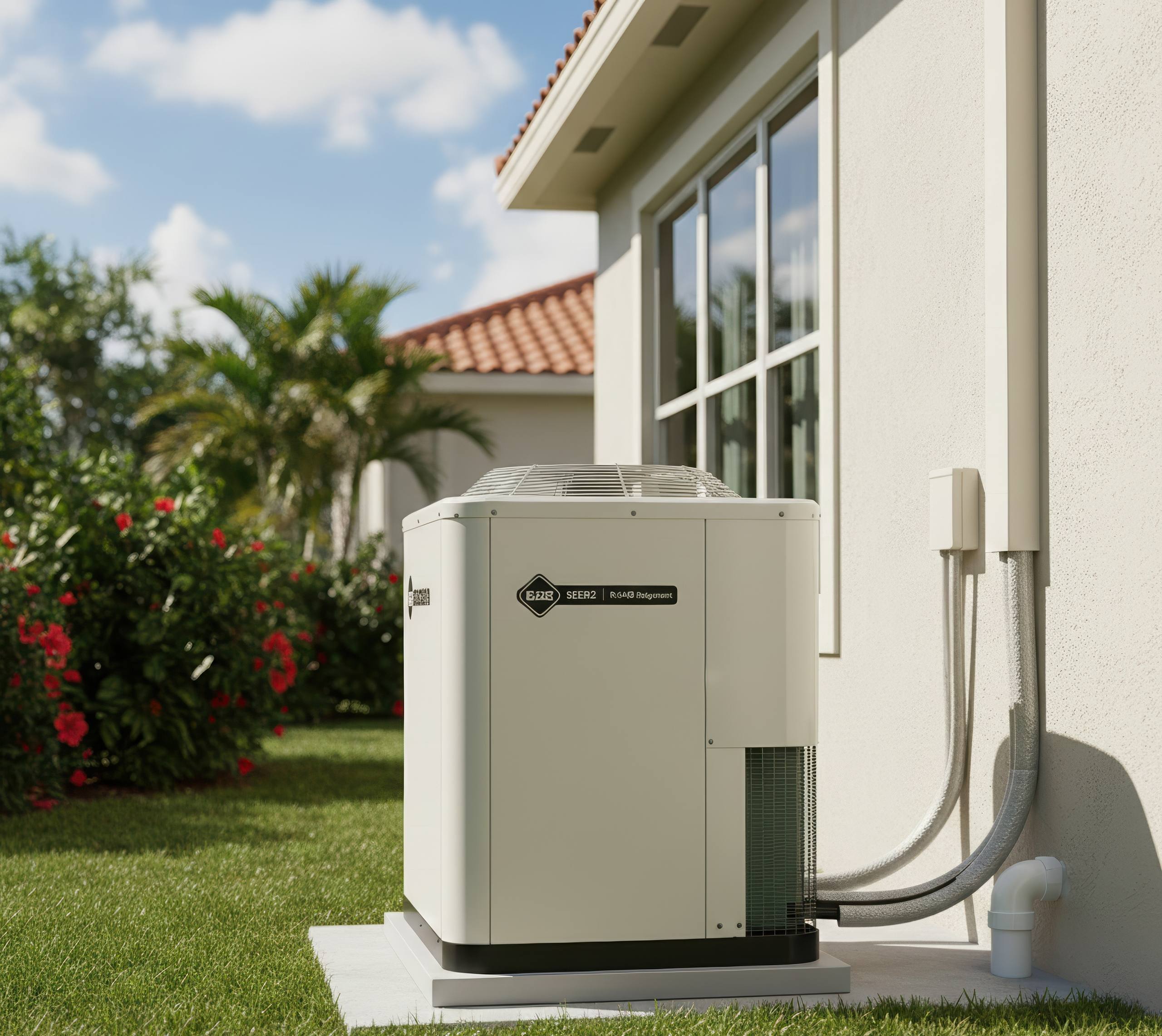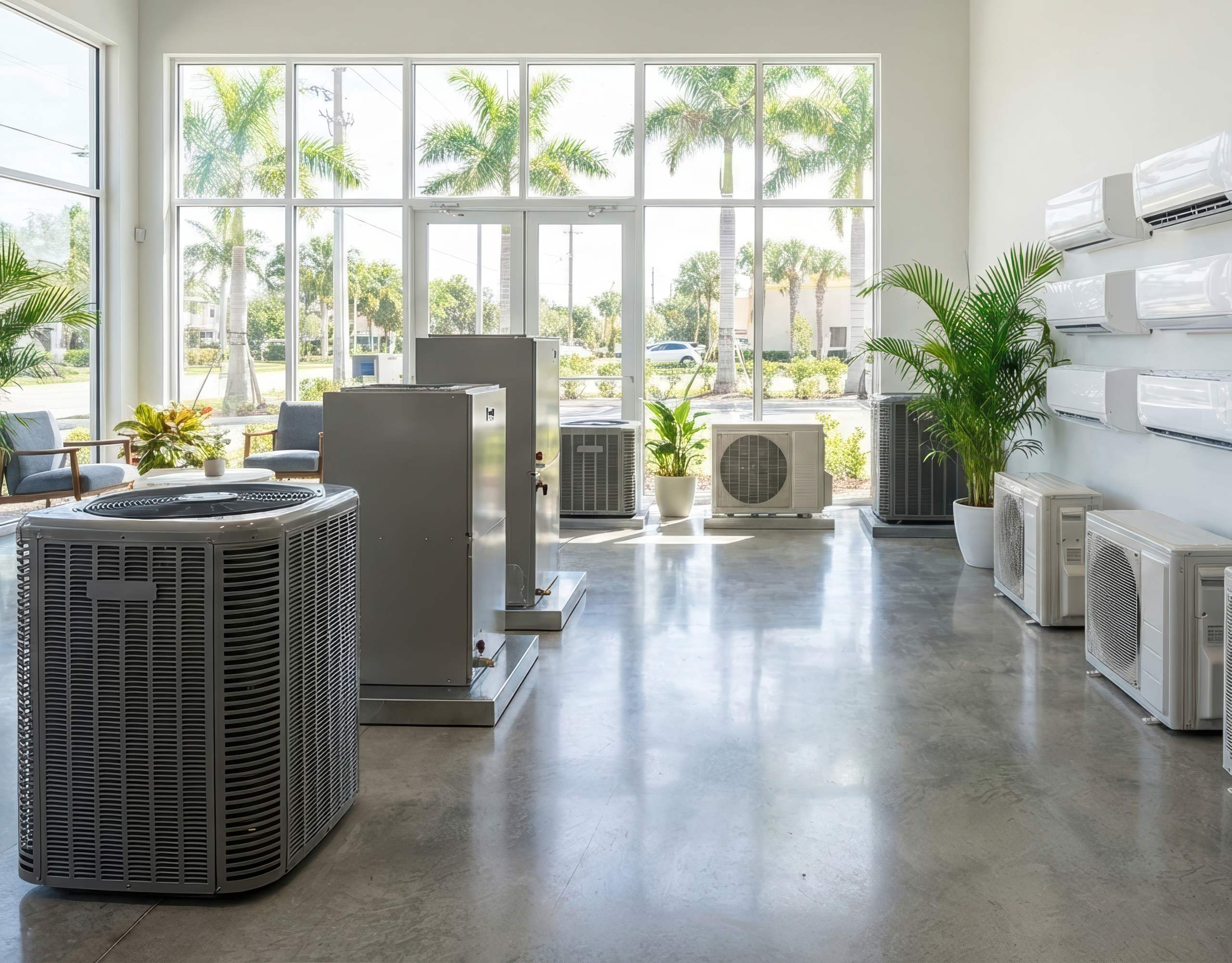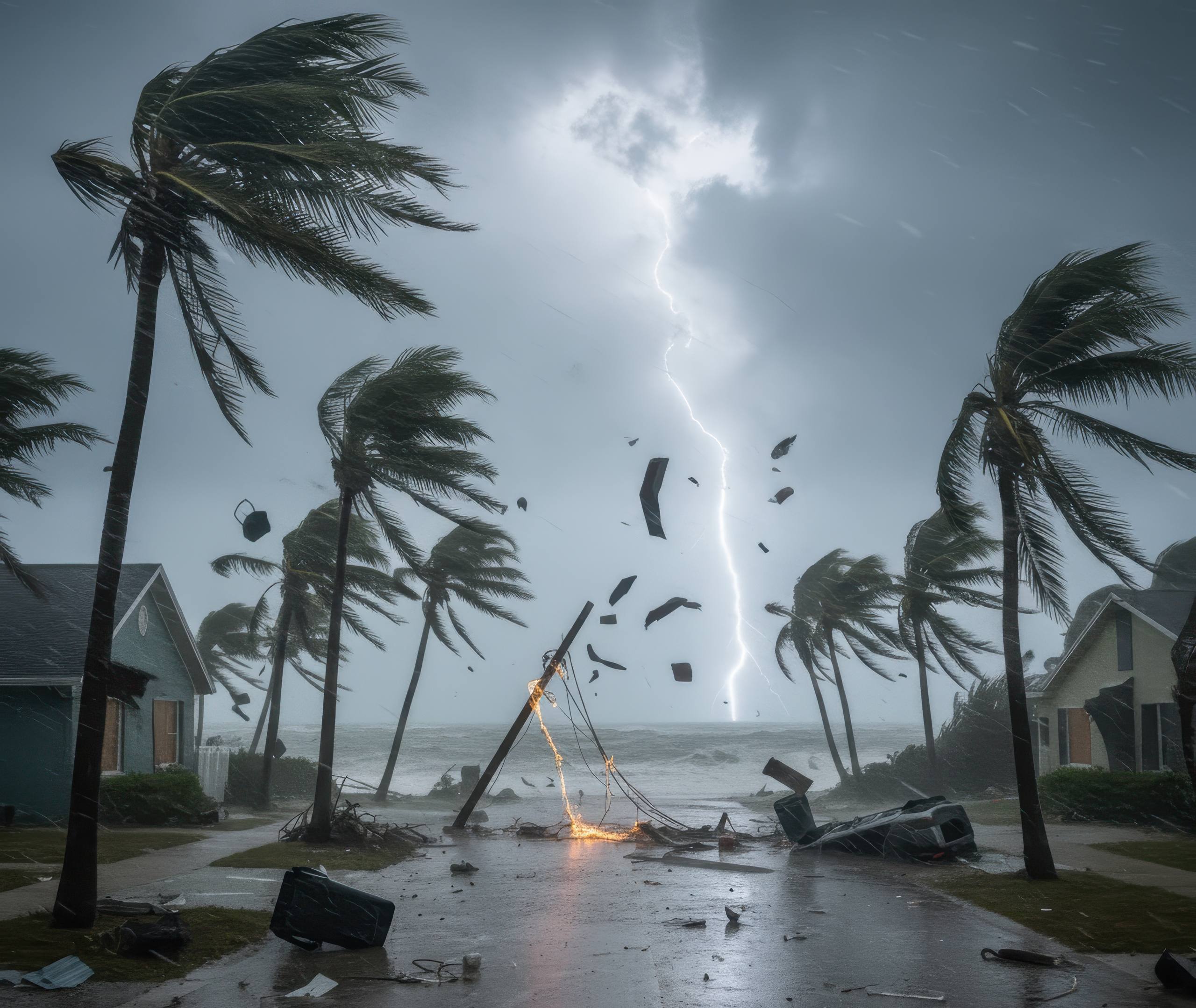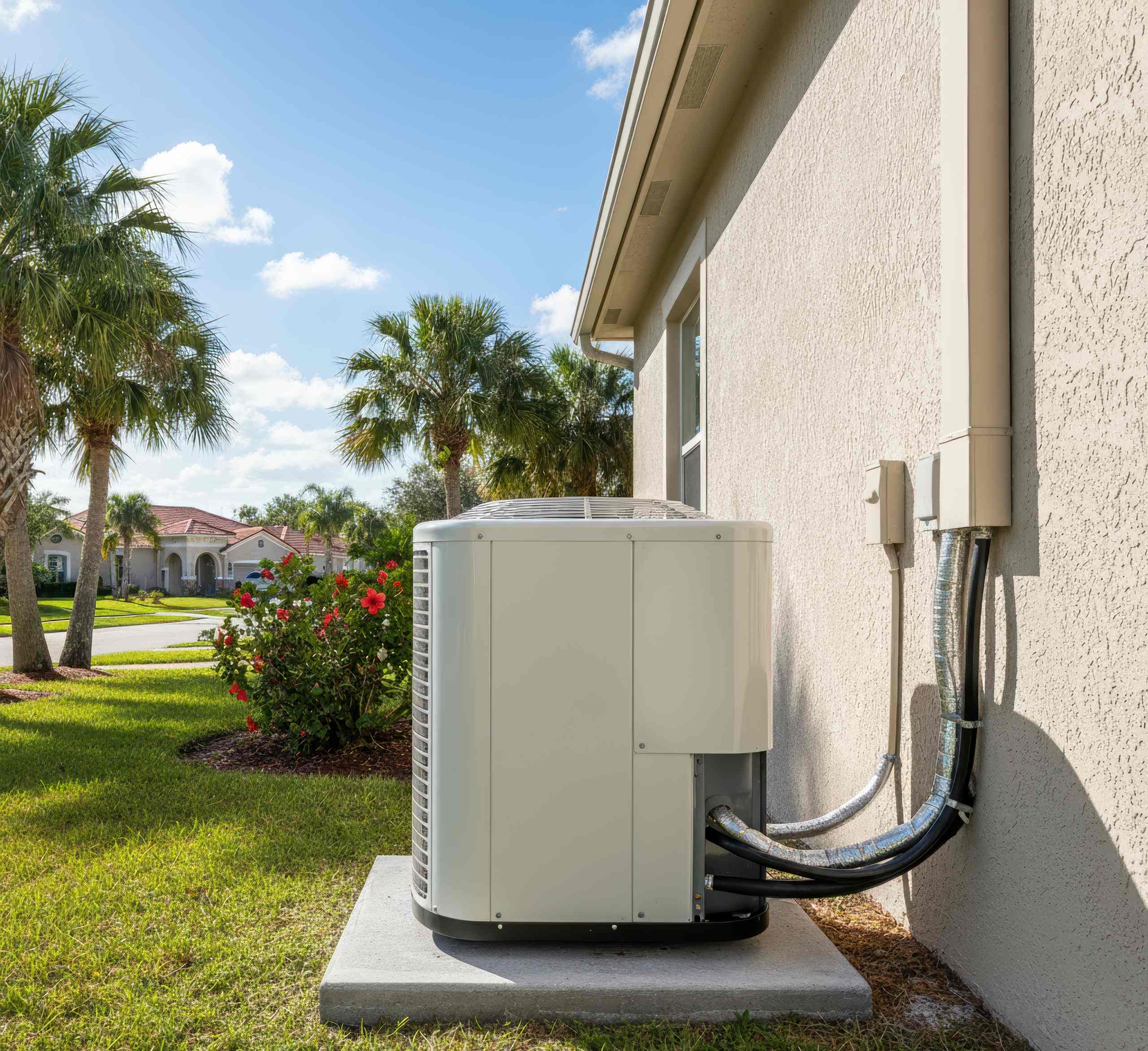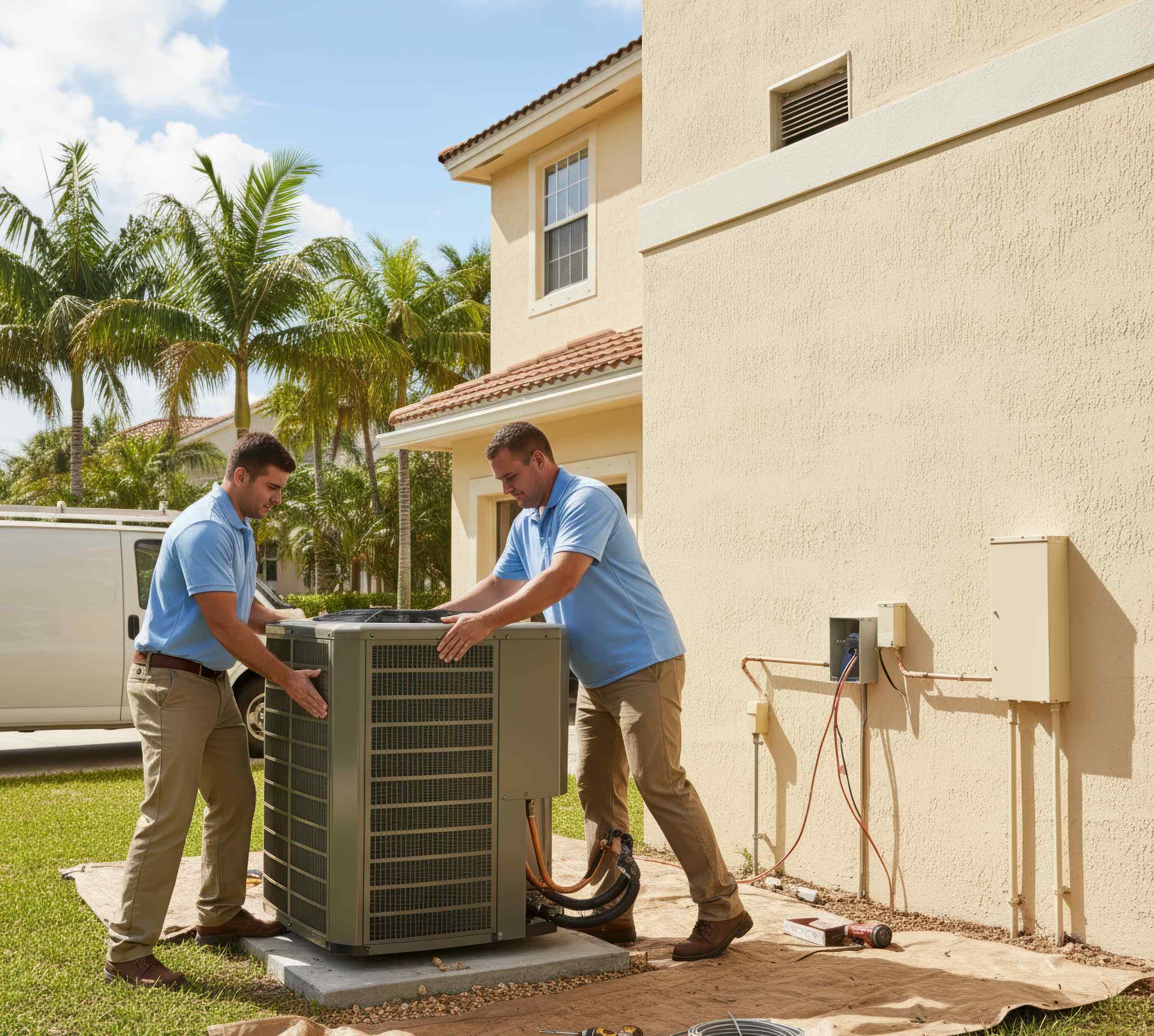The cost of air conditioners in Florida is an expense that most homeowners know only too well—not just the installation costs for new systems but the ongoing costs of running AC in our hot, humid climate.
The cost concerns can be offset if you know your cooling system is made to last but air conditioners need to work harder here than in most of the country.
How does that affect the lifespan of your air conditioner?
How long should air conditioners last in Florida? Can you expect 5-10 years of service or 10-20 years?
Understanding more about the longevity of an AC system should help you make more informed buying decisions as well as better budgeting decisions for maintenance and AC repairs.
HOW LONG DO AC UNITS LAST IN FLORIDA?
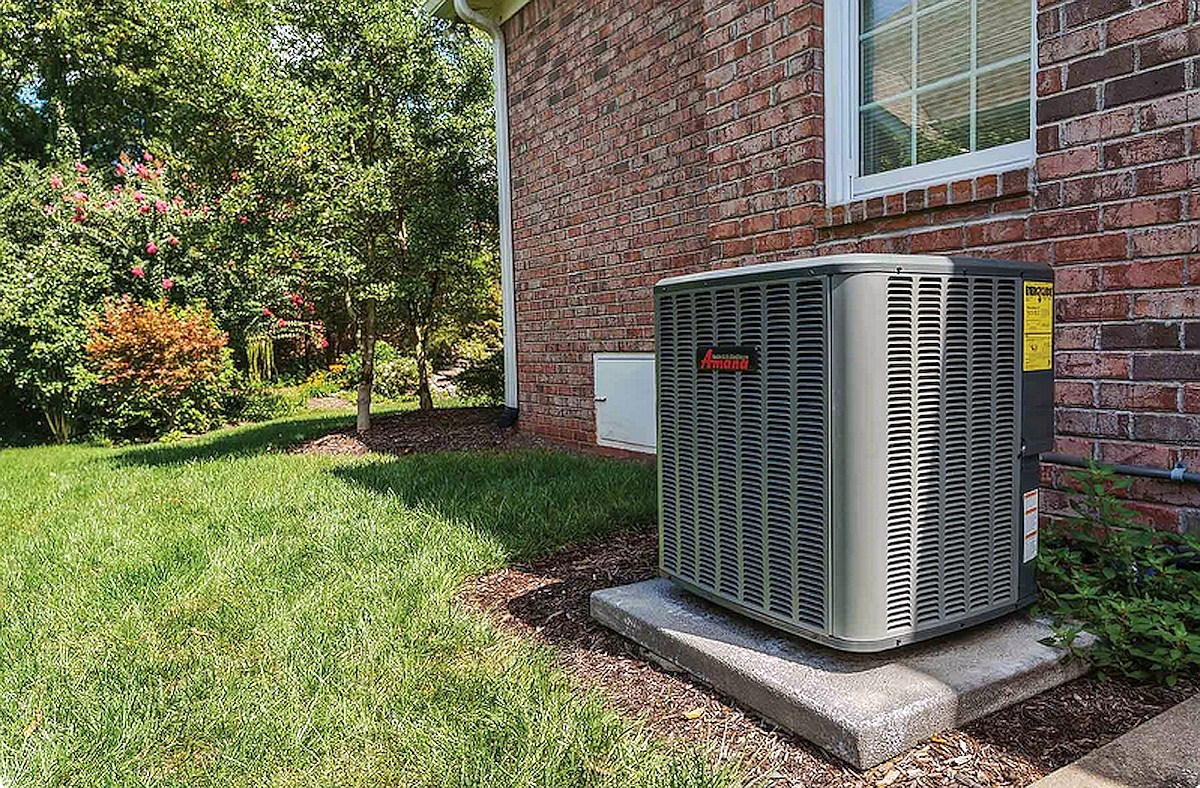
In Florida, the high heat, humidity, and salt content in the air in coastal areas puts extra wear and tear on air conditioning systems. Consequently, the average lifespan may be 5-7 less than the usual estimated AC lifespan average of 15-20 years.
You can expect your Florida air conditioning to last around 8-14 years before it needs replacement—though this depends on multiple factors, including where you live, the quality of the installation, the type of AC unit, whether it is correctly sized for your home, how often it’s maintained, and other factors.
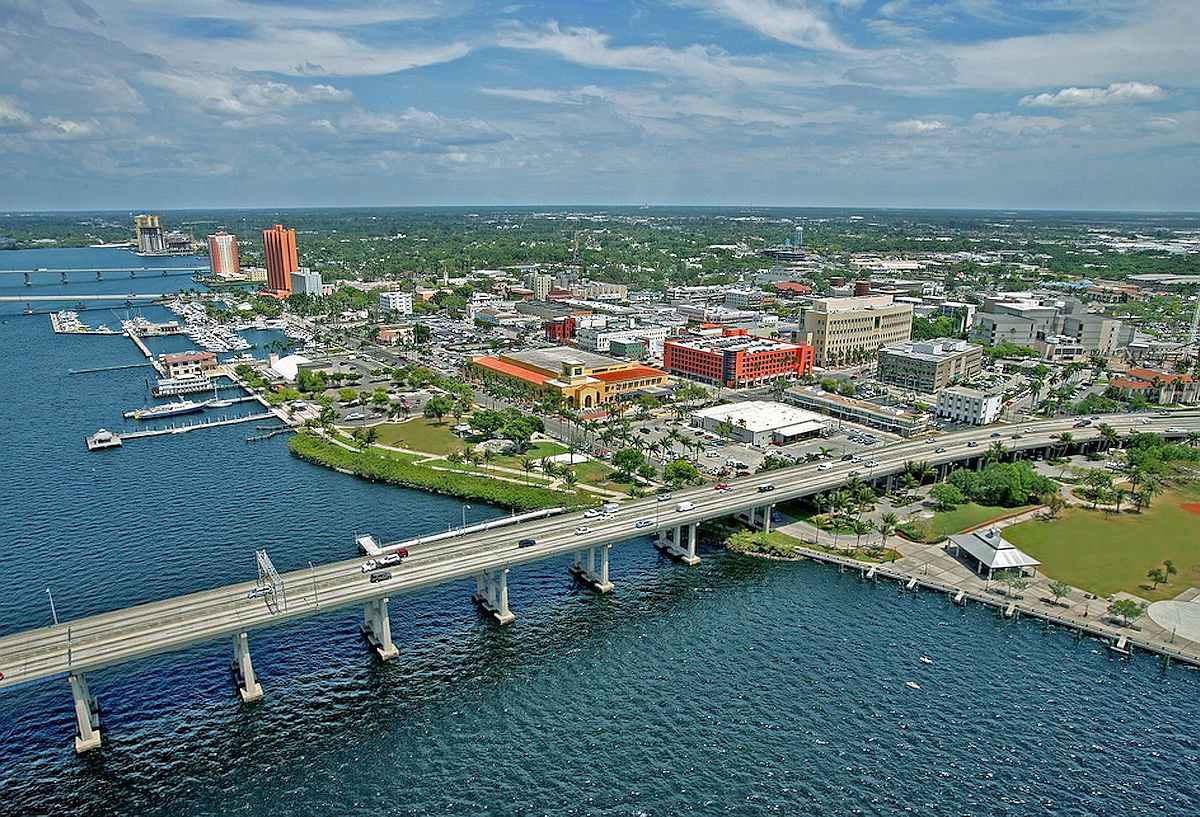
STAY COOL ALL YEAR ROUND WITH ONE WAY AIR…
The team at One Way Air installs, services, and repairs all types of air conditioning systems in Southwest Florida. Get in touch with us here for a quote or call 239-233-4356 in emergencies.
WHAT IMPACTS THE LIFESPAN OF YOUR AIR CONDITIONER?
Florida’s climate and saltwater environment present some unique challenges for homeowners and their cooling systems.
We ask our cooling systems to work hard because of the heat, humidity, and high amounts of salt in the air. Unless the system is maintained frequently, it can easily run into problems.
Most Florida homes have central AC, which is a major investment—selecting the right unit, getting the installation right, and looking after the system is essential. Unlike the climate, most of these factors are entirely within your control.
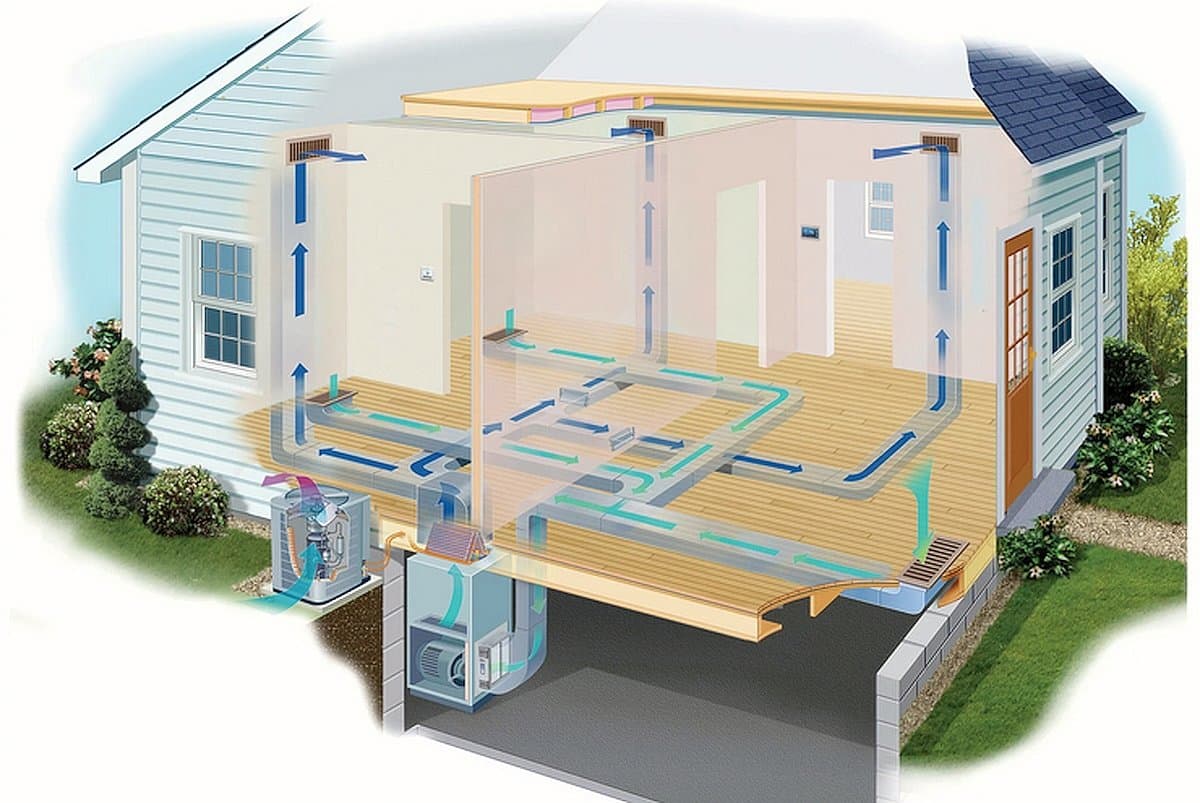
Here are the main factors that will impact how long your AC will last…
The quality of the installation
It doesn’t matter if you have the latest AC unit on the market—unless it’s installed by knowledgeable professionals, it could impact its lifespan.
AC installation is a highly specialist area and mistakes with pressure levels, refrigerant levels, electrical wiring, and so on, can have serious consequences not only for your AC’s cooling performance—but also for the family’s health and safety. It’s not a DIY job.
One Way Air’s AC technicians are all comprehensively vetted before they’re entrusted to install AC systems. With over two decades of experience in the SWFL area, our reputation is on the line—and thousands of homeowners have relied on our advice and expertise during that time.
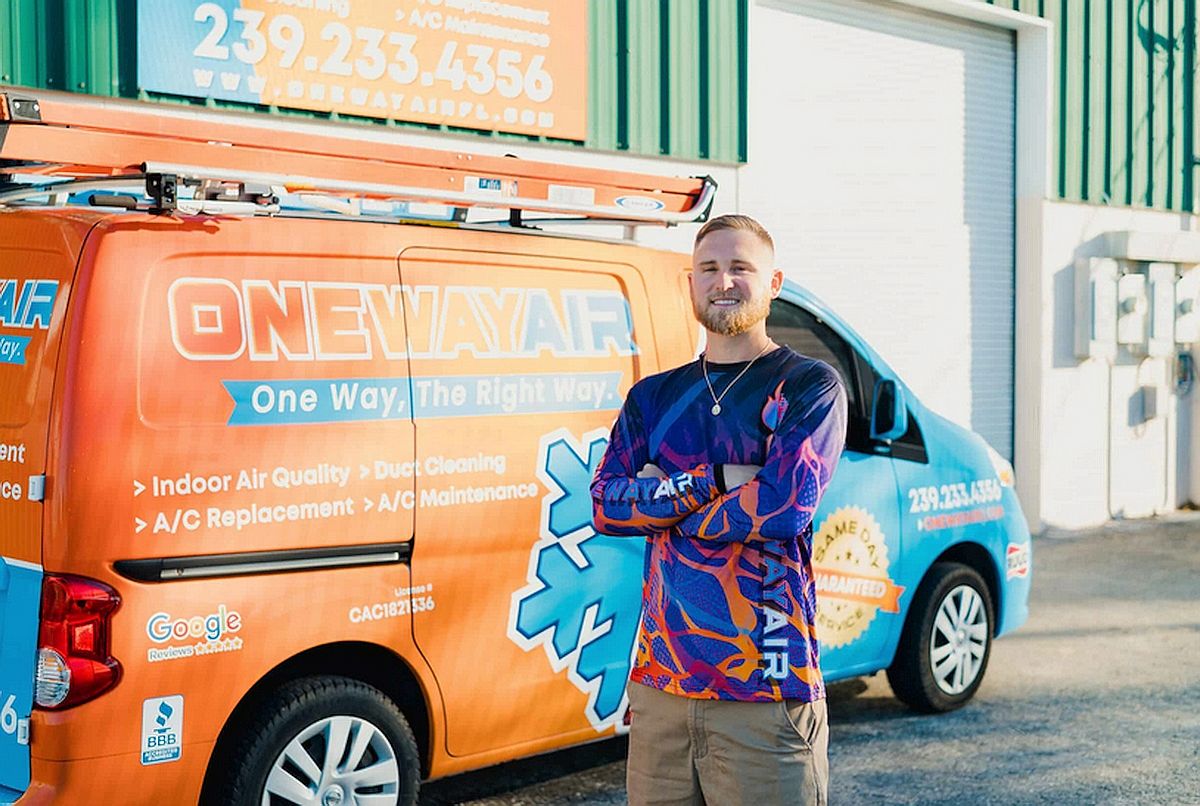
Whether your AC is correctly sized
Selecting the right size unit is one of the most basic elements of getting your home air conditioning choices right.
It’s relatively easy to find information online about AC tonnage and BTU size for different-sized spaces. However, correctly sizing a unit involves understanding further details, such as the number of floors, ceiling heights, insulation efficiency, sun exposure, number of occupants, and other factors in addition to the square footage of the home.
Once all these factors have been properly assessed and accurate load calculations made, you can select an AC unit of the correct size for your space. Experienced HVAC professionals can establish the necessary details with a relatively quick inspection.
A wrongly sized AC unit can result in:
- Inefficient operation
- Unnecessarily increased energy bills
- Reduced cooling and comfort levels
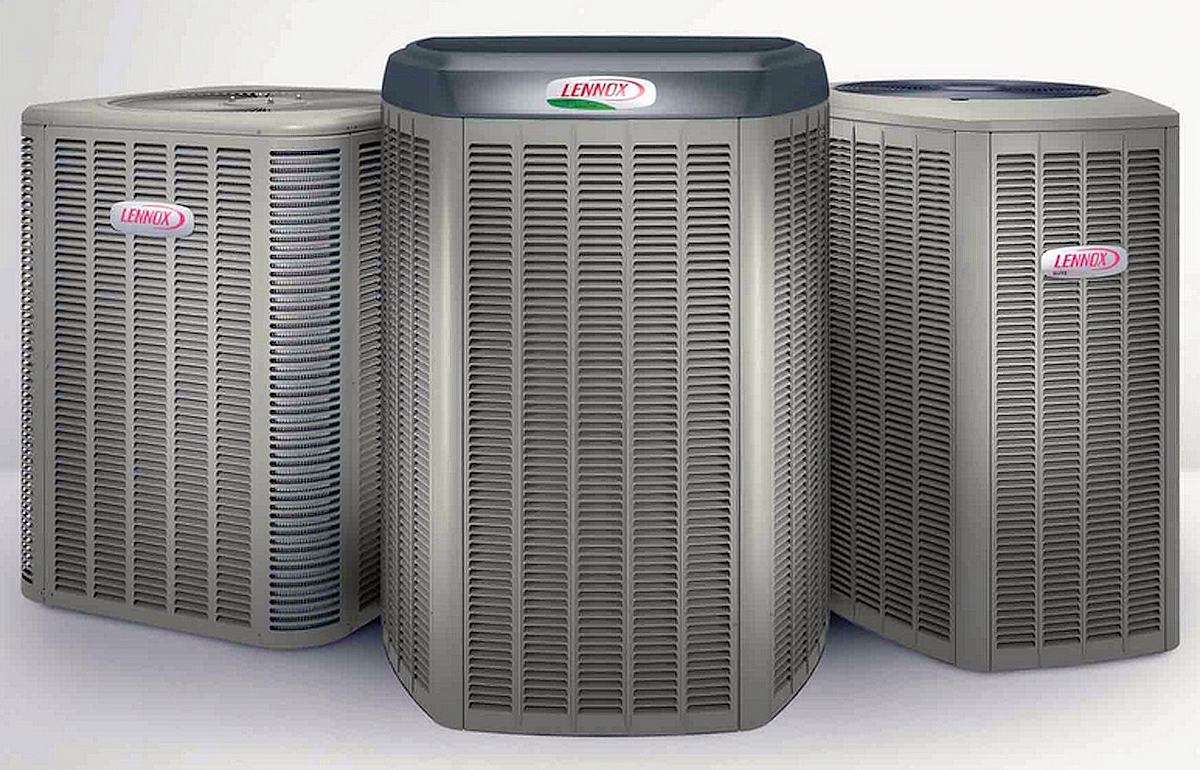
At One Way Air, we’ll ensure your property is inspected properly so that the right size air conditioning unit is recommended to handle all your cooling needs efficiently.
Your precise location
Homeowners who live by the coast—like those in the Fort Myers, Venice, and Naples areas—are likely already familiar with the type of damage that salt water can do to metal objects outside the home in this part of the world.
But what about the silent damage it does to your air conditioning unit?
In split systems, the AC’s condenser unit has a metal casing that houses important metallic components like aluminum fins, condenser coils, a compressor, and a fan. This unit sits outside the home and must deal with salt in warm, moist, humid air for most of the year. Despite manufacturers taking precautions against corrosion, the risk to parts is almost ever-present here, potentially leading to malfunctioning parts, lower cooling efficiency, and even a frozen-up AC unit.
The further inland you are from the Florida coast, the lower the risk, generally speaking.
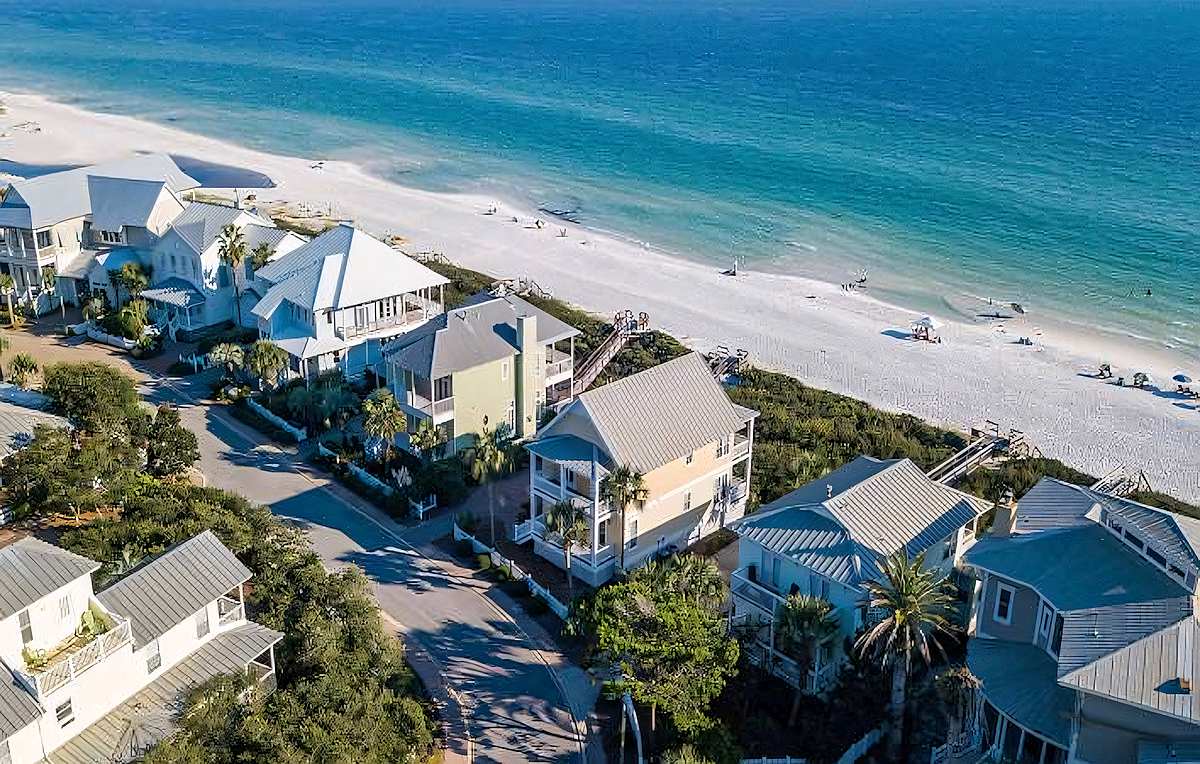
The friendly team at One Way Air will ensure you choose the right air conditioning unit and provide tips on how to protect it from potential damage.
Frequency of maintenance
Like with most valuable items, your air conditioner will last longer if you look after it. Some Florida homes spend almost as much on the air conditioning system as the family car, after all.
Sticking with the car analogy, running a vehicle without an annual checkup—or at least changing the oil—is asking for trouble. The same applies to air conditioning. Unless you book an annual checkup before the hot season (at the very least), you’re running the risk of:
- Lower cooling power and efficiency
- Poor comfort levels
- Damage to parts
- A shortened lifespan for your AC unit
Don’t leave maintenance until you’re left with no AC in the middle of summer. Be proactive by scheduling an annual service and recognizing these 7 signs you need an AC tune-up.
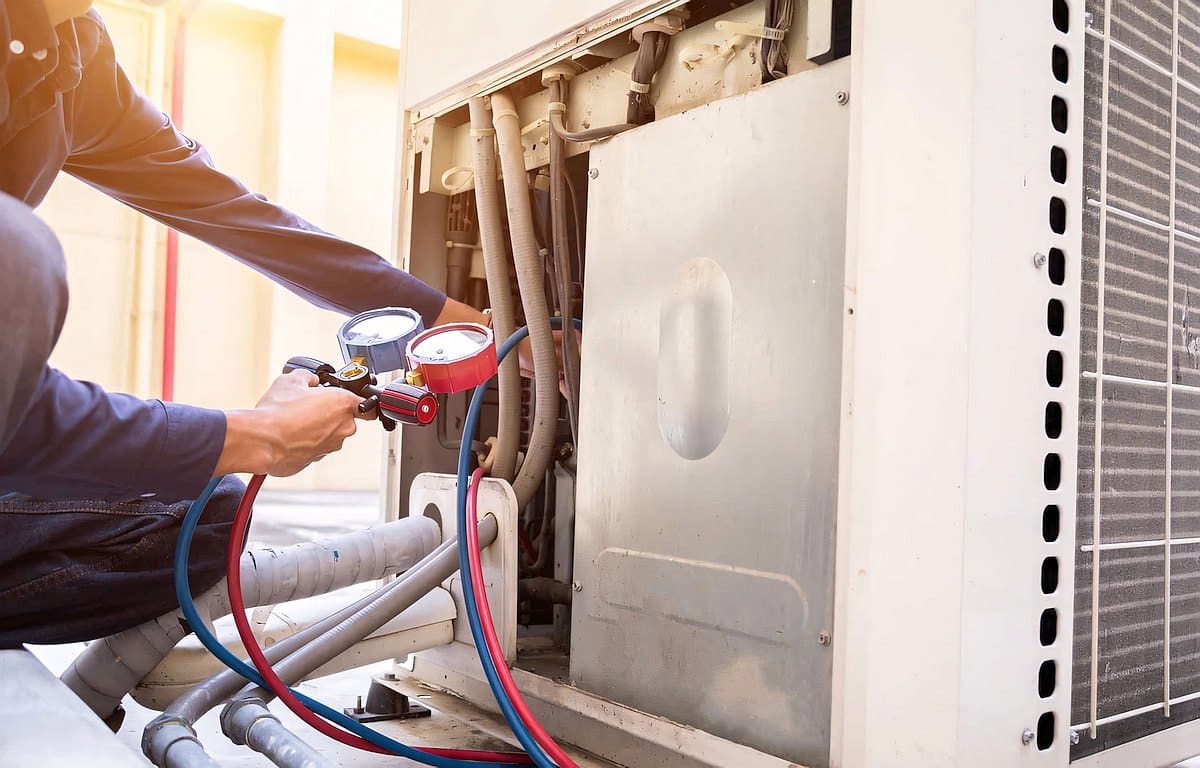
One Way Air frequently offers promotions on AC inspections and maintenance, with a team of trained and certified HVAC technicians who can repair any issues promptly and affordably.
Thermostat settings
Another factor within your control is the temperature settings in your home. Excessive AC usage due to incorrectly set thermostats can place more load on your air conditioner and accelerate wear and tear on its parts.
Ideally, keep the temperature range within the recommended limits of 62-78 degrees Fahrenheit and use a programmable thermostat to adjust for different times of day.
When nobody is home, the temperature on the thermostat can be turned up and the cooling turned off when you’re away on a break. This will ease the load on essential components of your AC.
Find out more about the right temperature settings for AC thermostats here.
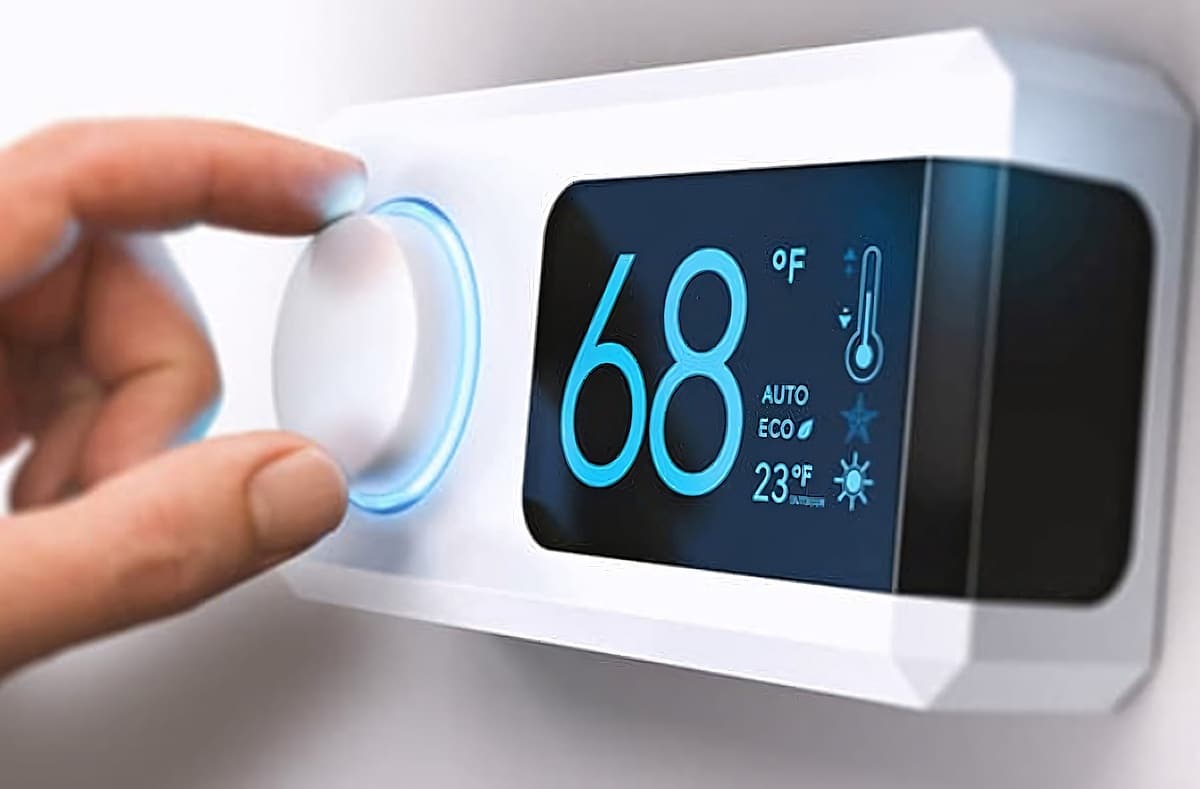
Humidity levels in your home
If a dehumidifier is installed in your home, it may extend the life of your AC unit by reducing its workload.
An AC system works partly by removing humidity from the air indoors. Excessive humidity like we experience in Florida means a lot of extra work for cooling systems. By reducing this with a whole-home dehumidifier, your air conditioning can work more efficiently and a little less intensely, potentially extending the life of key components.

HOW TO EXTEND THE LIFESPAN OF YOUR AC?
There are four main ways to extend the life of your AC system other than moving from the Florida coast to the Great Plains (which nobody wants to do!):
- Set your thermostat correctly
- Perform regular maintenance
- Troubleshoot AC problems promptly
- Take steps to prevent salt damage
First, setting the right temperature on your thermostat in summer, winter, while sleeping, and so on, can help your AC last longer. Your AC has to work hard in Florida but you can lighten the load a little (and extend its life) by getting the temperature settings right.
Second, you already know about the importance of annual maintenance. This should cover all items on this comprehensive AC maintenance checklist for Florida.
Cleaning, tightening, lubricating, and adjusting the complex balance of parts in cooling systems is a job for professionals. However, if you want to do a little home maintenance in between tune-ups, make sure the air filter is changed or cleaned every couple of months and clear any vegetation and debris around the outside unit.
The older your AC gets, the more likely it is to develop performance issues, even if you do look after it. These issues can develop into more serious issues or breakdowns if left unchecked. Troubleshooting promptly by an HVAC professional and either repairing or replacing faulty parts as needed can help your AC unit last longer.
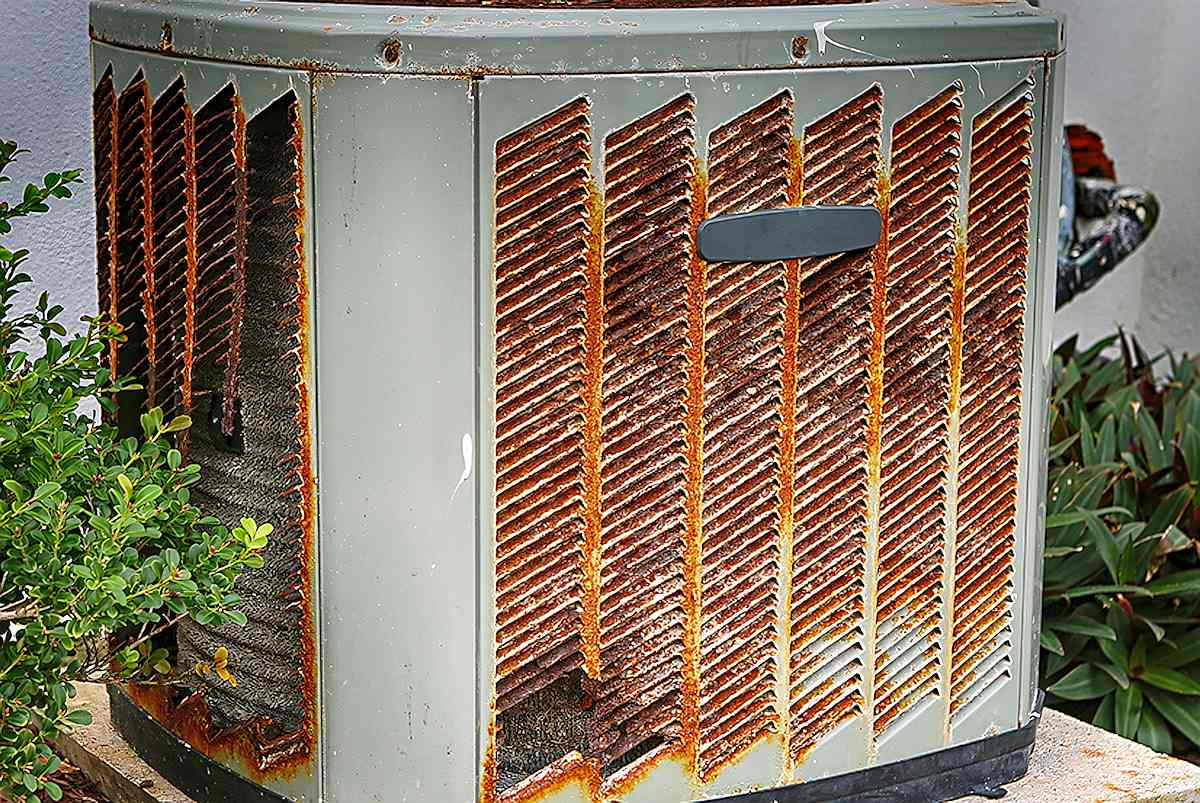
For those living directly on the coast, taking a few steps to prevent salt damage can also help your air conditioner last longer. Installing the outside unit away from sea breezes will help. You can also regularly spray down your outdoor unit and apply an anti-corrosion coat to it (seek professional assistance for this).
At One Way Air, we repair all makes and models of AC, and our work is backed by a one-year parts and labor guarantee. If you’re installing a new AC, we recommend brands with industry-leading warranties that protect you against many component defects for many years.
SHOULD I REPLACE MY AC?
There’s always a time when we have to say “out with the old and in with the new”. However, nobody wants the unnecessary expense of replacing an AC sooner than required. There may be no need to replace your AC after 11-14 years—but how do you know?
Firstly, it depends on what you’re trying to achieve. If your AC is old, unreliable, not working properly, and costing too much in repairs and energy costs, there are multiple reasons to upgrade.
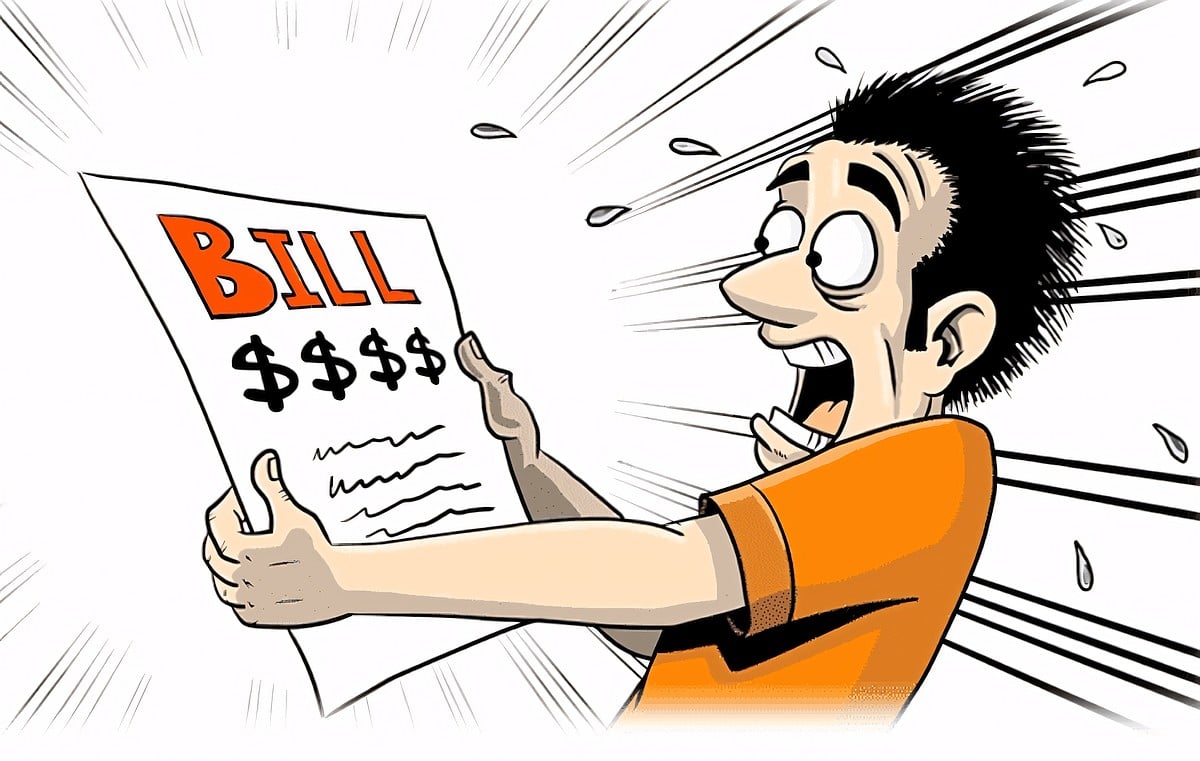
If, however, the unit is still cooling the home adequately but is not the most energy-efficient on the market, it may be more difficult to justify biting the bullet and upgrading.
Conversely, some homeowners place a premium on energy efficiency and need little reason to upgrade their system if a new model can offer benefits in this area.
The main considerations when deciding whether to replace your AC unit or not are:
- Does it fail regularly or require frequent repairs? If so, it may cost you more to keep it than replace it.
- How old is the unit? If past its life expectancy of 11-14 years, it may be a matter of time before the unit suffers breakdowns.
- Are the bills increasing without good reason? This could mean that your AC is showing signs of age
- How much could you save by replacing your AC? The energy efficiency of AC units is always improving and upgrading can save you money as well as headaches.
- Is the current unit the correct size? If you selected the wrong AC unit in the first place and it is too big or too small, it may pay to replace it with a correctly sized option.
- Is your comfort affected? If the family’s comfort levels are negatively impacted by an older AC’s performance, it’s often a compelling reason to upgrade.
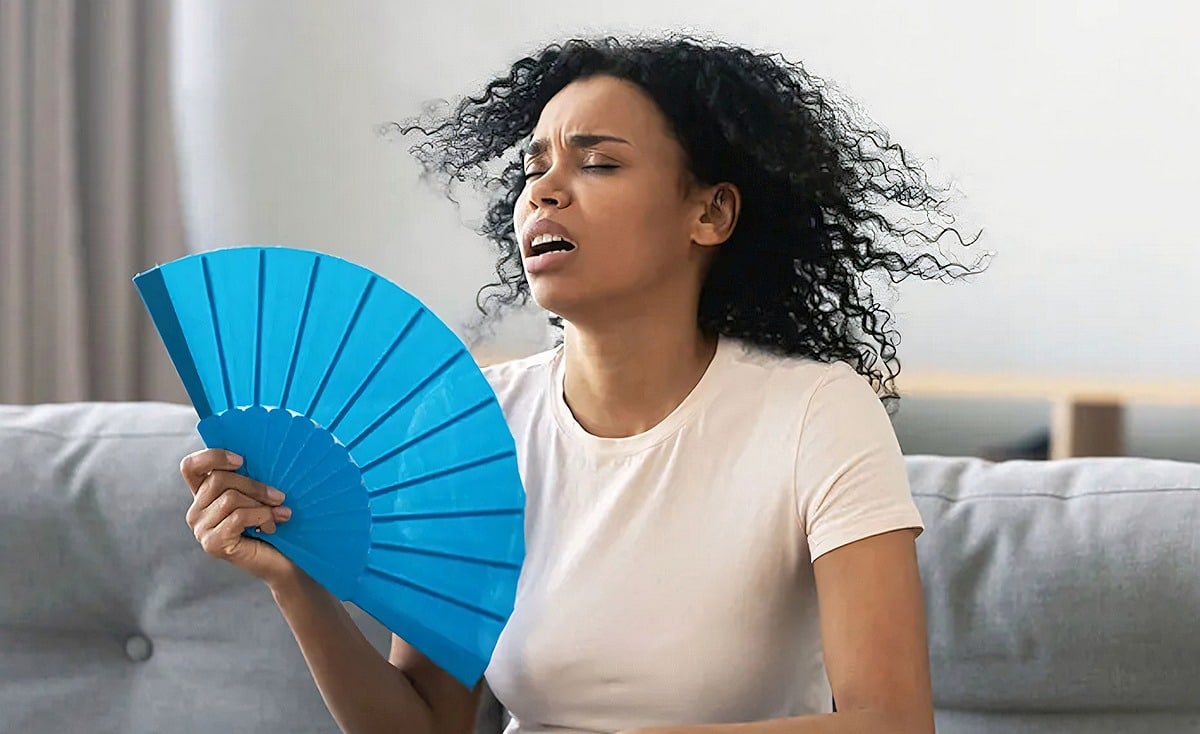
WHAT ARE THE MAIN SIGNS OF A FAILING AC UNIT?
Failing AC units may have past their life expectancies but simply need maintenance or repairs.
If you notice any of the following signs of failure or potential failure, call a professional HVAC technician for an assessment of what’s needed to get your AC back up and running:
- Strange smells or noises coming from your unit
- Not blowing cold air
- Weak, insufficient airflow
- Regularly leaking water or freezing up
- The outside unit is not running at all
- Clicking but not turning on
- Unexplained increases in energy bills
- Excessive humidity in the home
Being aware of these issues and calling promptly to AC professionals to address them can help you extend the life of your AC system.
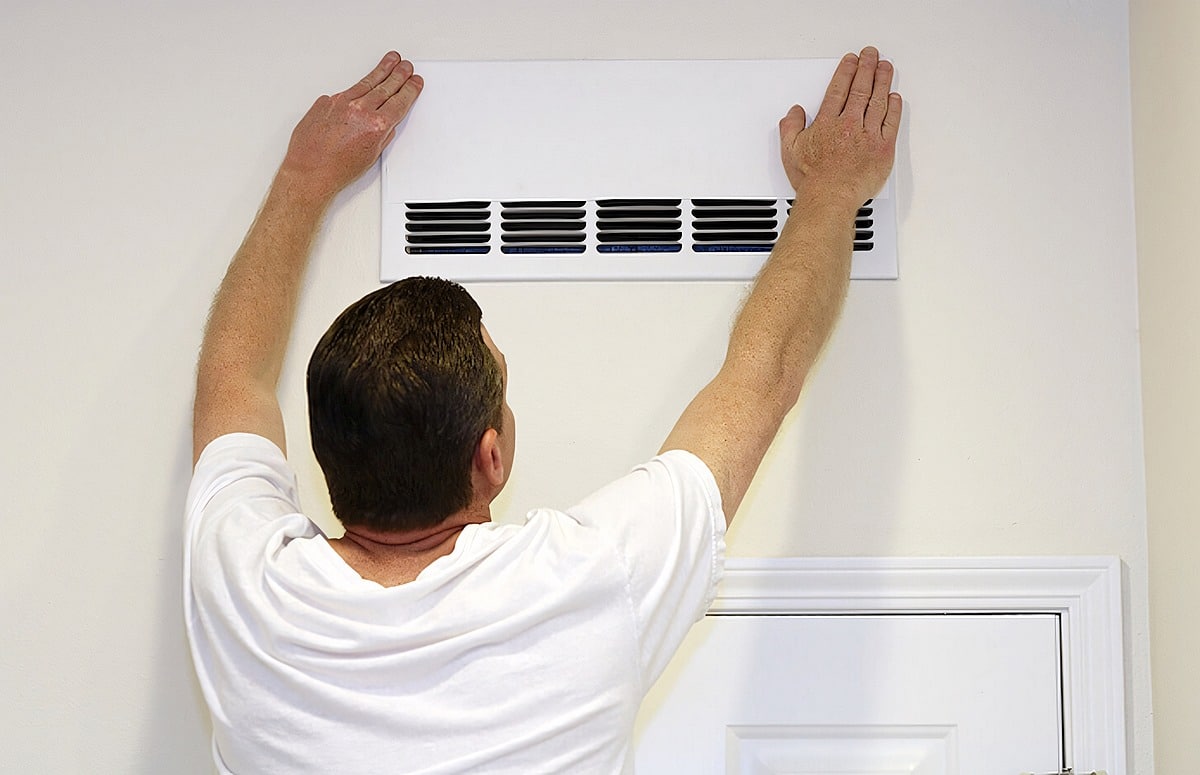
If you’re in SWFL and run into AC problems, One Way Air offers honest, informed recommendations and can guide you through the repair or replacement process. If you do need a replacement, payment plans are available for all the top AC brands.
FAQs
Does the type of AC system affect how long it lasts?
Every cooling system benefits from regular maintenance and prompt repairs if anything goes wrong. Most high-quality, well-installed, properly sized, and well-maintained central air conditioning systems have similar expected lifespans of 8-14 years in Florida (longer if you’re lucky). The same applies to most mini-split AC systems, ductless mini-split systems, and heat pumps.
How do I know if I need a new AC unit?
You may need to replace your AC unit if it’s 11-14 years old or more and is experiencing any issues with cooling your home, strange smells or noises being emitted, regular freezing up, higher-than-expected energy bills or frequently high repair bills.
Does insulation affect the lifespan of my AC?
Good insulation can help maintain a cooler home because less cool air escapes and less warm air enters the home. This helps to lower the AC system’s workload, which may extend its life.
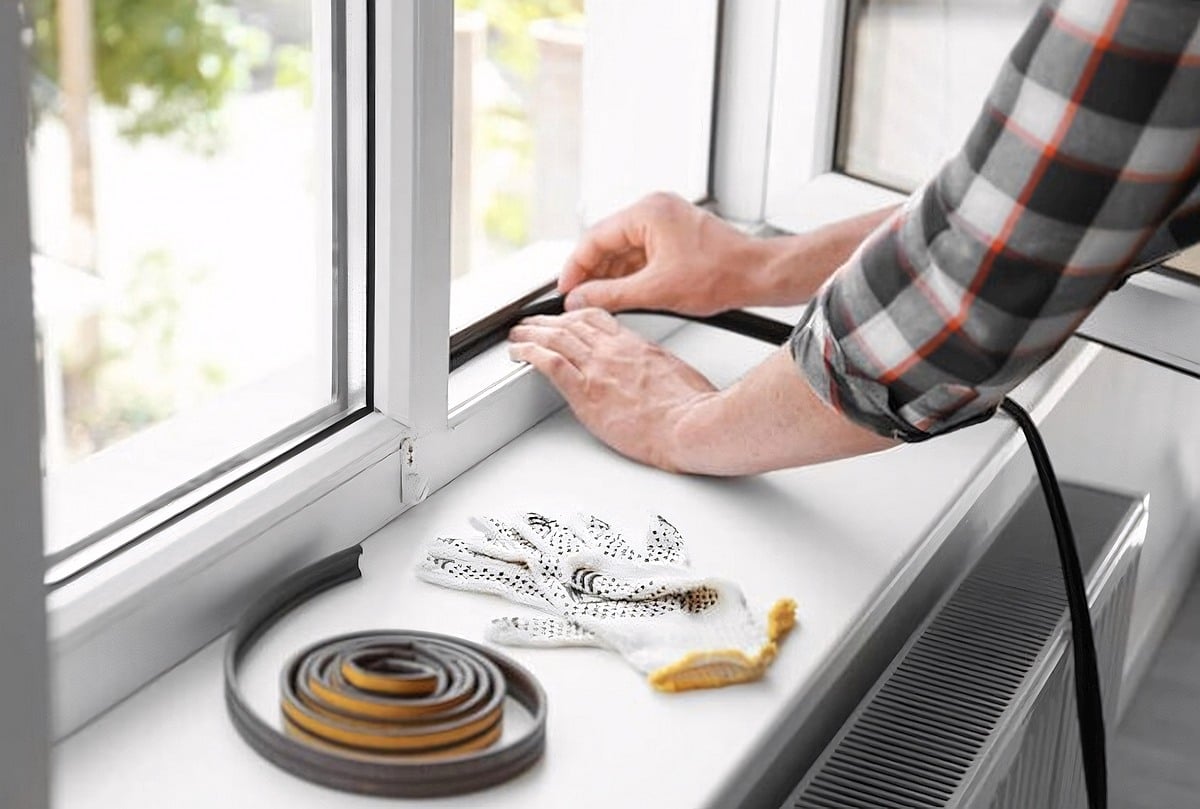
EXTEND THE LIFE OF YOUR AC IN SWFL…
Properly maintaining and promptly repairing your AC system can help your AC unit last longer than its expected lifespan—even with the high cooling requirements and the saltwater environment in Florida.
If you’re in Southwest Florida, talk to an AC professional about maintaining an efficient cooling system that keeps your family comfortable all year round. Contact One Way Air today.

